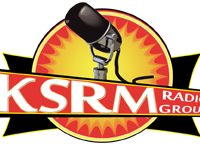Governor Mike Dunleavy signed a piece of legislation into law providing a new avenue for funding the state’s signage. The bill allows the state to accept donations from groups or individuals who wish to commemorate bridges, public buildings, and roads.
North Pole Sen. Robert Meyers:
“We have the ability to honor individual Alaskans and groups who have contributed to our communities, our state, and our nation. One way that we do that is by naming bridges, buildings, and roads after them. This bill came about because of one such naming bill. In the discussion in the transportation committee, the suggestion was made that a donation be collected to avoid the fiscal impact on the state. While small, it can hold up the process and detract from the effort to bestow the honor. Unfortunately, DOT informed us that the current process does not allow for donations until after the state expense has been authorized. SB 168 provides a new avenue for funding commemorative naming projects, by allowing receipt authority for DOT earlier in the process before the naming bill is passed. It does not require these costs be paid by outside groups, but instead helps codify a process that will not be reliant on state funds. This bill is less about policy and more about process and timing.”
According to Senate Bill 168, the Department of Transportation and Public Facilities may accept gifts, donations, and grants from a person or agency for the purpose of providing signage for an asset under the control of the department. All gifts, donations, and grants will be used in accordance with a memorandum of understanding agreed on by the donor and the department. Additionally, any signage created is subject to necessary funds being collected from the donor. State funds may not be expended for signage until necessary funds have been collected from the donor.
According to Juneau Sen. Jesse Kiehl, under the previous rules, no matter how popular the honoree or how many donors want to name a road or bridge or building after an individual, cash for the sign must come out of the public purse, resulting in some facilities not having any signs.
The bill was co-sponsored by Senate President Peter Micciche.
Transcribed audio courtesy of KTOO 360TV.
